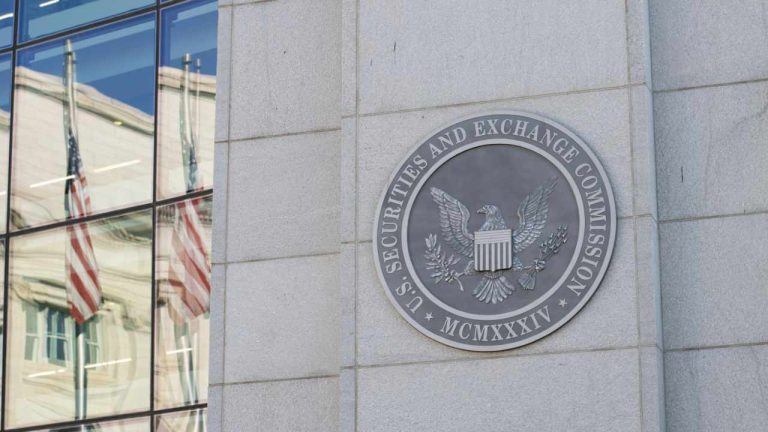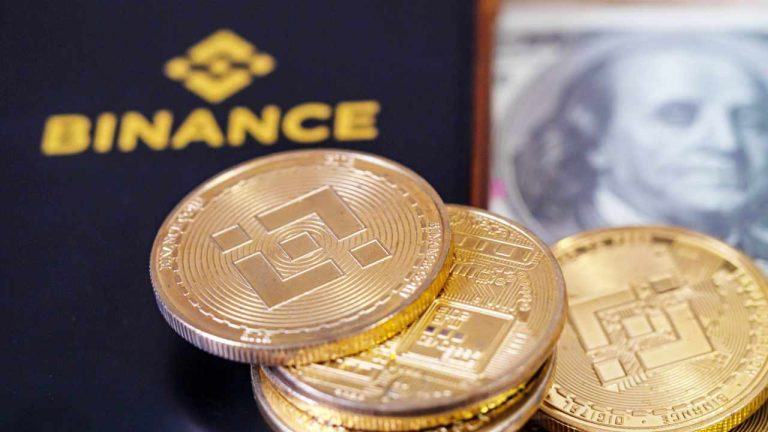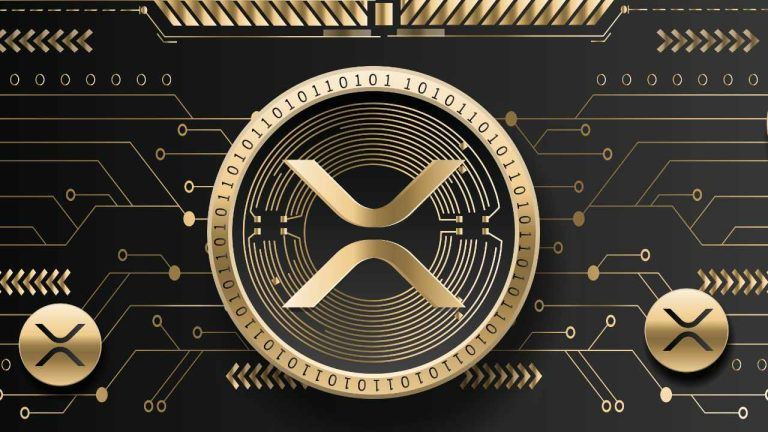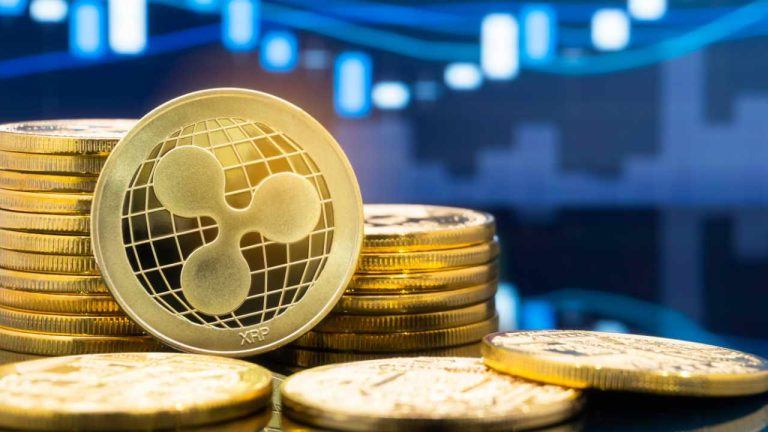 Dennis Kelleher, CEO of Better Markets, says the U.S. Securities and Exchange Commission (SEC) has a 90% chance of winning an appeal in the Ripple lawsuit over XRP. He criticized the court ruling as flawed, arguing that the judge in the Ripple case misapplied the law. Better Markets CEO on SEC Appeal Against Ripple Dennis […]
Dennis Kelleher, CEO of Better Markets, says the U.S. Securities and Exchange Commission (SEC) has a 90% chance of winning an appeal in the Ripple lawsuit over XRP. He criticized the court ruling as flawed, arguing that the judge in the Ripple case misapplied the law. Better Markets CEO on SEC Appeal Against Ripple Dennis […] Ripple’s chief legal officer says he wouldn’t be surprised if the U.S. Securities and Exchange Commission (SEC) does appeal the final ruling in the Ripple lawsuit over XRP. He questioned the SEC’s rationality and expressed confidence that any appeal by the SEC would likely fail. Alderoty urged the SEC to focus on its core mission […]
Ripple’s chief legal officer says he wouldn’t be surprised if the U.S. Securities and Exchange Commission (SEC) does appeal the final ruling in the Ripple lawsuit over XRP. He questioned the SEC’s rationality and expressed confidence that any appeal by the SEC would likely fail. Alderoty urged the SEC to focus on its core mission […] The U.S. Securities and Exchange Commission (SEC) has addressed District Judge Analisa Torres’ ruling in the Ripple case over XRP, emphasizing the substantial financial penalties imposed on the crypto firm and its ongoing securities law violations. While Ripple celebrated the 94% reduced fine, the regulator underscored that the court acknowledged Ripple’s securities violations. SEC Reacts […]
The U.S. Securities and Exchange Commission (SEC) has addressed District Judge Analisa Torres’ ruling in the Ripple case over XRP, emphasizing the substantial financial penalties imposed on the crypto firm and its ongoing securities law violations. While Ripple celebrated the 94% reduced fine, the regulator underscored that the court acknowledged Ripple’s securities violations. SEC Reacts […]

The regulator claims that Coinbase's document discovery requests are overly broad and disproportionate to the needs of the case.
The United States Securities and Exchange Commission has again pushed back against Coinbase’s request for documents, including private emails from SEC Chair Gary Gensler.
On Aug. 5, the SEC filed a motion in an attempt to deny Coinbase’s effort to access certain documents, including all SEC internal and external emails about the application of securities laws to digital assets.
The SEC argued that Coinbase's discovery requests are overly broad, seeking irrelevant material that is disproportionate to the needs of the case.
 The U.S. District Court for the District of Columbia has dismissed several claims in the U.S. Securities and Exchange Commission (SEC)’s case against Binance and its affiliates. This includes allegations related to secondary BNB sales and the sale of the stablecoin BUSD. However, the majority of the claims against the crypto exchange will proceed. Some […]
The U.S. District Court for the District of Columbia has dismissed several claims in the U.S. Securities and Exchange Commission (SEC)’s case against Binance and its affiliates. This includes allegations related to secondary BNB sales and the sale of the stablecoin BUSD. However, the majority of the claims against the crypto exchange will proceed. Some […] Ripple’s chief legal officer has clarified that a California district judge has dismissed all allegations that Ripple violated federal securities laws. He stressed that District Judge Analisa Torres’ ruling regarding the non-security status of XRP “stands undisturbed.” New York’s ‘Ruling That XRP Is Not a Security Stands Undisturbed’ Following the ruling by the U.S. District […]
Ripple’s chief legal officer has clarified that a California district judge has dismissed all allegations that Ripple violated federal securities laws. He stressed that District Judge Analisa Torres’ ruling regarding the non-security status of XRP “stands undisturbed.” New York’s ‘Ruling That XRP Is Not a Security Stands Undisturbed’ Following the ruling by the U.S. District […] The U.S. District Court for the Northern District of California has issued an order granting in part and denying in part the motion for summary judgment in a lawsuit concerning allegations of securities law violations against Ripple Labs, XRP II, and Ripple CEO Brad Garlinghouse. Court Ruling on Ripple’s Securities Lawsuit The U.S. District Court […]
The U.S. District Court for the Northern District of California has issued an order granting in part and denying in part the motion for summary judgment in a lawsuit concerning allegations of securities law violations against Ripple Labs, XRP II, and Ripple CEO Brad Garlinghouse. Court Ruling on Ripple’s Securities Lawsuit The U.S. District Court […]

Judge Phyllis Hamilton found XRP could be a security when sold to retail and gave the go-ahead to a lawsuit over statements from Ripple CEO Brad Garlinghouse.
A United States federal court judge has greenlit a civil securities lawsuit against Ripple Labs, denying its summary judgment bid in a suit alleging its CEO broke California securities laws.
California District Court Judge Phyllis Hamilton’s June 20 order means a jury will decide if Ripple boss Brad Garlinghouse made “misleading statements” in a 2017 interview, the order has thrown out four allegations around Ripple’s “failure to register XRP as a security.”
In the 2017 interview on Canada’s BNN Bloomberg, Garlinghouse said he was “very, very long” on XRP (XRP) — but the suit alleges that was false as he “sold millions of XRP” throughout that year.
 This year, with the U.S. Securities and Exchange Commission (SEC) increasing enforcement on businesses accused of offering unregistered crypto securities to American investors, regulators, attorneys, and judges have been utilizing the Howey Test to ascertain whether specific crypto assets constitute an “investment contract” and thereby fall under U.S. securities laws. Below is an in-depth exploration […]
This year, with the U.S. Securities and Exchange Commission (SEC) increasing enforcement on businesses accused of offering unregistered crypto securities to American investors, regulators, attorneys, and judges have been utilizing the Howey Test to ascertain whether specific crypto assets constitute an “investment contract” and thereby fall under U.S. securities laws. Below is an in-depth exploration […]
The White House has signalled it won’t veto the passage of the FIT21 bill despite U.S. Securities and Exchange Commission Chair Gary Gensler advocating against it. In a new press release, the White House says it does not support HR 4763, also known as the Financial Innovation and Technology for the 21st Century Act (FIT21), […]
The post White House Won’t Veto Passage of FIT21 Despite Opposition From SEC Chair Gary Gensler appeared first on The Daily Hodl.